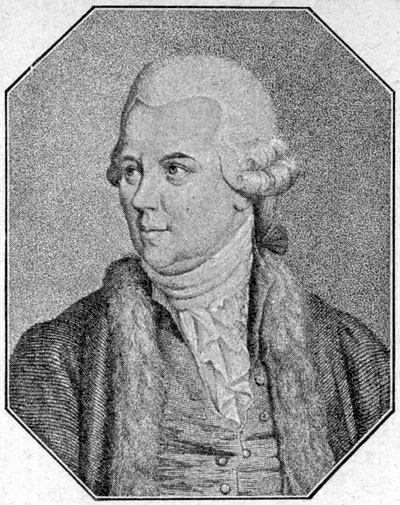“Recitare una commedia non puramente sentimentale, fu cosa pericolosissima.”
Origine: Citato in Enrico Piceni, introduzione a Christopher Morley, Tuono a sinistra, Arnoldo Mondadori Editore, 1947.
Oliver Goldsmith è stato uno scrittore e drammaturgo irlandese.

“Recitare una commedia non puramente sentimentale, fu cosa pericolosissima.”
Origine: Citato in Enrico Piceni, introduzione a Christopher Morley, Tuono a sinistra, Arnoldo Mondadori Editore, 1947.
Origine: Il vicario di Wakefield, p. 83
Origine: Il vicario di Wakefield, p. 5
Origine: Da The Citizen of the World, lettera XV; citato in Peter Singer, Utilitarismo e vegetarianesimo, in Aa. Vv., Etica e animali, traduzione di Brunella Casalini, Liguori Editore, Napoli, 1998, p. 253 (in epigrafe). ISBN 88-207-2686-6
Utet, 1966, p. 192
Il vicario di Wakefield
Utet, 1966, p. 62
Il vicario di Wakefield
Origine: Il vicario di Wakefield, p. 50
“Quella virtù che ha sempre bisogno di essere custodita, non vale la pena che la si custodisca.”
Utet, 1966, p. 36
Il vicario di Wakefield
Origine: The Vicar of Wakefield (1766), Ch. 8, The Hermit (Edwin and Angelina), st. 6-7.
“It seemed to be pretty plain, that they had more of love than matrimony in them.”
Origine: The Vicar of Wakefield (1766), Ch. 16.
“The king himself has followed her
When she has walk'd before.”
Elegy on Mrs. Mary Blaize, st. 5.
The Bee (1759)
“This same philosophy is a good horse in the stable, but an arrant jade on a journey.”
Act I.
The Good-Natured Man (1768)
“Baw! Damme, but I'll fight you both, one after the other!
With baskets.”
She Stoops to Conquer (1771), Act IV
“Man wants but little here below,
Nor wants that little long.”
Origine: The Vicar of Wakefield (1766), Ch. 8, The Hermit (Edwin and Angelina), st. 8.
“I'll be with you in the squeezing of a lemon.”
She Stoops to Conquer (1771), Act I
Origine: The Vicar of Wakefield (1766), Ch. 17, An Elegy on the Death of a Mad Dog, st. 3.
“On the stage he was natural, simple, affecting;
'Twas only that when he was off he was acting.”
Origine: Retaliation (1774), Line 101.
Origine: The Vicar of Wakefield (1766), Ch. 8, The Hermit (Edwin and Angelina), st. 19.
“The sigh that rends thy constant heart
Shall break thy Edwin's too.”
Origine: The Vicar of Wakefield (1766), Ch. 8, The Hermit (Edwin and Angelina), st. 33.
Act II.
The Captivity, An Oratorio (1764)
“They liked the book the better the more it made them cry.”
She Stoops to Conquer (1771), Act II
“Her modest looks the cottage might adorn,
Sweet as the primrose peeps beneath the thorn.”
Origine: The Deserted Village (1770), Line 329.
“And, ev'n while fashion's brightest arts decoy,
The heart distrusting asks, if this be joy.”
Origine: The Deserted Village (1770), Line 263.
“The man recovered of the bite,
The dog it was that died.”
Origine: The Vicar of Wakefield (1766), Ch. 17, An Elegy on the Death of a Mad Dog, st. 8.
“To me more dear, congenial to my heart,
One native charm, than all the gloss of art.”
Origine: The Deserted Village (1770), Line 253.